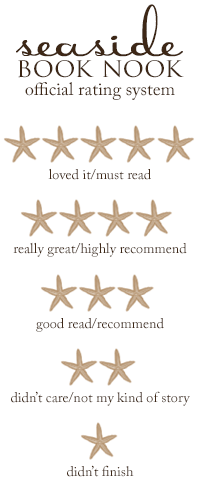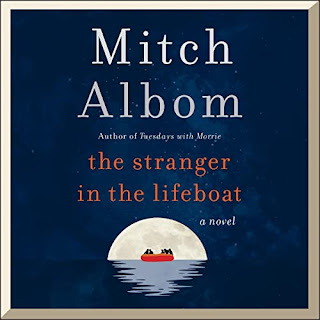~ I received no compensation and opinions are 100% my own or my family. ~
Synopsis:
From one of America’s most beloved storytellers, #1 New York Times and #1 USA Today bestselling author Jacquelyn Mitchard, comes the gripping novel of a mother who must help her son after he is convicted of a devastating crime. Perfect for book clubs and fans of Mary Beth Keane and Jodi Picoult—this novel asks the question, how well does any mother know her child?
For Thea, understanding how her sweet son Stefan could be responsible for a heinous crime is unfathomable. Stefan was only 17 when he went to prison for the negligent homicide of girlfriend, college freshman Belinda McCormack—a crime he was too strung out on drugs even to remember. Released at 21, he is seen as a symbol of white privilege and differential justice by his local community, and Belinda’s mother, Jill McCormack, who also happens to be Thea’s neighbor, organizes protests against dating violence in her daughter's memory.
Stefan is sincere in his desire to start over and make amends, and Thea is committed to helping him. But each of their attempts seems to hit a roadblock, both emotionally and psychologically, from the ever-present pressure of local protestors, the media, and even their own family.
But when the attacks on them turn more sinister, Thea suspects that there is more to the backlash than community outrage. She will risk her life to find out what forces are at work to destroy her son and her family…and discover what those who are threatening them are trying to hide.
This is a story in which everything known to be true is turned inside out and love is the only constant that remains.
THE GOOD SON
Author: Jacquelyn Mitchard
ISBN: 9780778311799
Publication Date: January 18, 2022
Publisher: MIRA Books
Facebook: Jacquelyn Mitchard
Twitter: @JackieMitchard
Instagram: @jacquelynmitchard
1
I was picking my son up at the prison gates when I spotted the mother of the girl he had murdered.
Two independent clauses, ten words each, joined by an adverb, made up entirely of words that would once have been unimaginable to think, much less say.
She pulled in—not next to me, but four spaces over—in the half circle of fifteen-minute spots directly in front of the main building. It was not where Stefan would walk out. That would be over at the gatehouse. She got out of her car, and for a moment I thought she would come toward me. I wanted to talk to her, to offer something, to reach out and hold her, for we had not even been able to attend Belinda’s funeral. But what would I say? What would she? This was an unwonted crease in an already unaccustomed day. I slid deep into my down coat, and wished I could lock the car doors, although I feared that the sound would crack the predawn darkness like a rifle shot. All that Jill McCormack did, however, was shove her hands into the pockets of her jacket and lean against the back bumper of her car. She wore the heavy maroon leather varsity jacket that her daughter Belinda, captain of the high school cheer team in senior year, had given to her, to Stefan, and to me, with our names embroidered in gold on the back, just like hers.
I hadn’t seen Jill McCormack up close for years, though she lived literally around the corner. Once, I used to stop there to sit on her porch, but now I avoided even driving past the place.
Jill seemed smaller, diminished, the tumult of ash-blond hair I remembered cropped short and seemingly mostly white, though I knew she was young when Belinda was born, and now couldn’t be much past forty. Yet, even just to stand in the watery, slow-rising light in front of a prison, she was tossed together fashionably, in gold-colored jeans and boots, with a black turtleneck, a look I would have had to plan for days. She looked right at my car, but gave no sign that she recognized it, though she’d been in it dozens of times years ago. Once she had even changed her clothes in my car. I remember how I stood outside it holding a blanket up over the windows as she peeled off a soaking-wet, floor-length, jonquil-yellow crystal-beaded evening gown that must, at that point, have weighed about thirty pounds, then slipped into a clean football warm-up kit. After she changed, we linked arms with my husband and we all went to a ball.
But I would not think of that now.
I had spent years assiduously not thinking of any of that.
A friendship, like a crime, is not one thing, or even two people. It’s two people and their shared environs and their histories, their common memories, their words, their weaknesses and fears, their virtues and vanities, and sometimes their shame.
Jill was not my closest friend. Some craven times, I blessed myself with that—at least I was spared that. There had always been Julie, since fifth grade my heart, my sharer. But Jill was my good friend. We had been soccer moms together, and walking buddies, although Jill’s swift, balanced walk was my jog. I once kept Belinda at my house while Jill went to the bedside of her beloved father who’d suffered a stroke, just as she kept Stefan at her house with Belinda when they were seven and both had chicken pox, which somehow neither I nor my husband, Jep, ever caught. And on the hot night of that fundraising ball for the zoo, so long ago, she had saved Stefan’s life.
Since Jill was a widow when we first met, recently arrived in the Midwest from her native North Carolina, I was always talking her into coming to events with Jep and me, introducing her to single guys who immediately turned out to be hopeless. That hot evening, along with the babysitter, the two kids raced toward the new pool, wildly decorated with flashing green lights, vines and temporary waterfalls for a “night jungle swim.” Suddenly, the sitter screamed. When Jill was growing up, she had been state champion in the 200-meter backstroke before her devout parents implored her to switch to the more modest sport of golf, and Belinda, at five, was already a proficient swimmer. My Stefan, on the other hand, sank to the bottom like a rock and never came up. Jill didn’t stop to ask questions. Kicking off her gold sandals, in she went, an elegant flat race dive that barely creased the surface; seconds later she hauled up a gasping Stefan. Stefan owed his life to her as surely as Belinda owed her death to Stefan.
In seconds, life reverses.
Jill and I once talked every week. It even seemed we once might have been machatunim, as they say in Yiddish, parents joined by the marriage of their son and daughter. Now, the circumstances under which we might ever exchange a single word seemed as distant as the bony hood of moon above us in the melting darkness.
What did she want here now? Would she leave once Stefan came through the gates? In fact, she left before that. She got back into her car, and, looking straight ahead, drove off.
I watched until her car was out of sight.
Just after dawn, a guard walked Stefan to the edge of the enclosure. I looked up at the razor wire. Then, opening the window slightly, I heard the guard say, “Do good, kid. I hope I never see you again.” Stefan stepped out, and then put his palm up to a sky that had just begun to spit snow. He was twenty, and he had served two years, nine months and three days of a five-year sentence, one year of which the judge had suspended, noting Stefan’s unblemished record. Still, it seemed like a week; it seemed like my entire life; it seemed like a length of time too paltry for the monstrous thing he had done. I could not help but reckon it this way: For each of the sixty or seventy years Belinda would have had left to live, Stefan spent only a week behind bars, not even a season. No matter how much he despaired, he could always see the end. Was I grateful? Was I ashamed? I was both. Yet relief rippled through me like the sweet breeze that stirs the curtains on a summer night.
I got out and walked over to my son. I reached up and put my hand on his head. I said, “My kid.”
Stefan placed his huge warm palm on the top of my head. “My mom,” he said. It was an old ritual, a thing I would not have dared to do in the prison visiting room. My eyes stung with curated tears. Then I glanced around me, furtively. Was I still permitted such tender old deeds? This new universe was not showing its hand. “I can stand here as long as I want,” he said, shivering in wonderment. Then he said, “Where’s Dad?”
“He told you about it. He had to see that kid in Louisville one more time,” I told him reluctantly. “The running back with the very protective grandmother. He couldn’t get out of it. But he cut it short and he’ll be home when we get back, if he beats the weather out of Kentucky this morning, that is.” Jep was in only his second season as football coach at the University of Wisconsin–Whitewater, a Division II team with significant chops and national esteem. We didn’t really think he would get the job, given our troubles, but the athletic director had watched Jep’s career and believed deeply in his integrity. Now he was never at rest: His postseason recruiting trips webbed the country. Yet it was also true that while Stefan’s father longed equally for his son to be free, if Jep had been able to summon the words to tell the people who mattered that he wanted to skip this trip altogether, he would have. But he couldn’t quite bring himself to say it’s a big day, our son’s getting out of prison.
Now, it seemed important to hurry Stefan to the car, to get out of there before this new universe recanted. We had a long drive back from Black Creek, where the ironically named Belle Colline Correctional Facility squatted not far from the campus of the University of Wisconsin–Black Creek. Stefan’s terrible journey had taken him from college to prison, a distance of just two miles as the crow flies. I felt like the guard: I never wanted to see the place again. I had no time to think about Jill or anything else except the weather. We’d hoped that the early-daylight release would keep protestors away from the prison gates, and that seemed to have worked: Prisoners usually didn’t walk out until just before midday. There was not a single reporter here, which surprised me as Jill was tireless in keeping her daughter Belinda’s death a national story, a symbol for young women in abusive relationships. Many of the half dozen or so stalwarts who still picketed in front of our house nearly every day were local college and high-school girls, passionate about Jill’s work. As Stefan’s release grew near, their numbers rose, even as the outdoor temperatures fell. A few news organizations put in appearances again lately as well. I knew they would be on alert today and was hoping we could beat some of the attention by getting back home early. In the meantime, a snowstorm was in the forecast: I never minded driving in snow, but the air smelled of water running over iron ore—a smell that always portended worse weather.
Excerpted from The Good Son by Jacquelyn Mitchard. Copyright © 2022 by Jacquelyn Mitchard. Published by arrangement with Harlequin Books S.A.


















